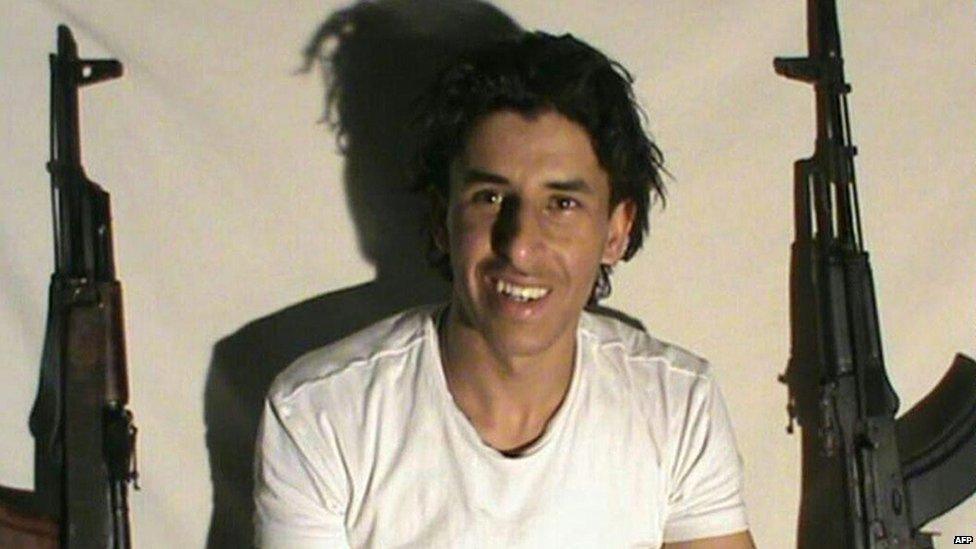Tunisia attack: Arrests over Sousse massacre
- Published
Footage of the attack in Sousse was filmed by a member of hotel staff
Tunisia has arrested a group of people over the massacre of 38 people, mainly tourists, by a gunman at the beach resort of Sousse on Friday, the country's interior minister has said.
Mohamed Gharsalli said 1,000 troops would now be deployed to protect the country's beach resorts.
Three European ministers have laid flowers at the scene of the attack in a sign of solidarity.
Islamic State (IS) has said it was behind the attack.
On Sunday the BBC learned that at least 30 of the dead were from the UK.
Tunisian Interior Minister Mohamed Najem Gharsalli: "We are friends against one enemy"
"We have started by arresting a first group, a significant number of people, from the network that was behind this terrorist criminal," said Mr Gharsalli, referring to gunman Seifeddine Rezgui, the Tunisian student who carried out Friday's attack.
Tunisian authorities say he was the only attacker, but he had accomplices who provided him with weapons and logistical support, reports AP news agency.
"We are friends against one enemy," said Mr Gharsalli, addressing his counterparts from the UK, Germany and France.
Home Secretary Theresa May: ''We are very clear that the terrorists will not win''
British Home Secretary Theresa May described Friday's attack as "a despicable act of cruelty".

Tunisia's vulnerability - analysis from the BBC's Aidan Lewis
While much remains unclear about the extent and nature of the threat within Tunisia that the events in Sousse may expose, observers have pointed once more to two specific risks.
First, the threat posed by neighbouring Libya, a fractured country with porous borders that has been awash with weapons since the fall of Muammar Gaddafi, and where Islamic State now has an established presence.
And second, the apparently large number of Tunisians who have left to fight in Syria and Iraq, hundreds of whom are estimated to have returned home.

The gunman Rezgui came onto the beach from the sea either by jet ski or speedboat at about midday on Friday. He started shooting on the beach, entered the Hotel Imperial Marhaba and ran out of the front of the hotel before the police shot him dead.
The BBC's Mark Lowen says there is a sense of disbelief in Rezgui's home town. Not only is the community shattered by the news but it is also unable to comprehend how it could have happened.

Tunisia's interior ministry say authorities are "sure" that Seifeddine Rezgui had accomplices
Friday's attack was the deadliest in Tunisia's recent history. In March, militants killed 22 people, mainly foreigners, at the Bardo museum in the capital Tunis.
Tunisian authorities say army reservists will be deployed to tourist sites and that about 80 mosques accused of inciting violence will be closed within a week.
The BBC's Rana Jawad in Sousse says Tunisia's economy is largely reliant on the tourism industry and officials are keen to show that they are taking the necessary measures to prevent deadly attacks in the future.